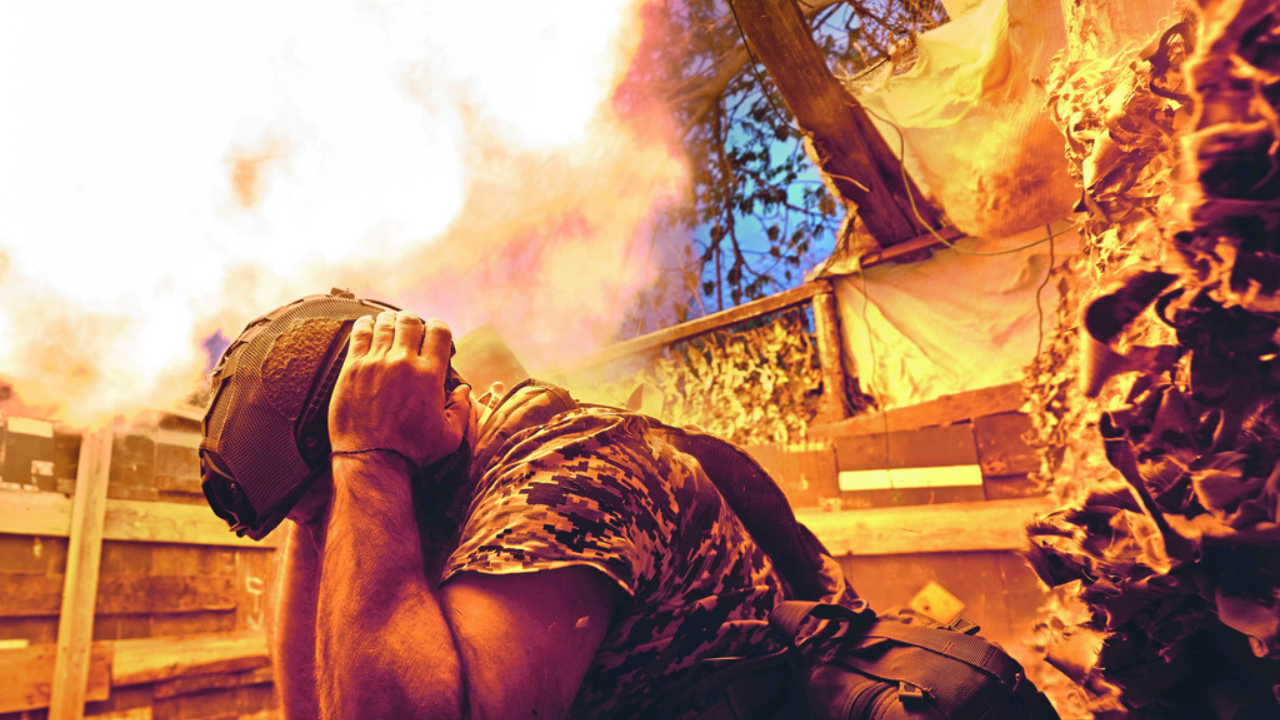The US has accused Russia of using chemical weapons, including poison gas, “as a method of warfare” against Ukrainian forces, in violation of a global ban on the use of such weapons.
The state department said in a statement on Wednesday that Russia had used chloropicrin, a “choking agent” widely used during World War I, as well as tear gas, against Ukrainian troops.The use of these gases in warfare is banned under the Chemical Weapons Convention, an arms control treaty ratified by more than 150 countries, including Russia. “The use of such chemicals is not an isolated incident and is probably driven by Russian forces’ desire to dislodge Ukrainian forces from fortified positions and achieve tactical gains on the battlefield,” the state department said.
The state department also said that the US would impose sanctions on three state entities linked to Russia’s chemical and biological weapons programmes and four companies that support them.
Anatoly Antonov, Russia’s ambassador to the US, called the accusations that Russian forces had used chemical weapons “odious and unsubstantiated” in a post on the Telegram messaging app. Kremlin spokesman Dmitry Peskov told reporters that Moscow remained bound by its obligations under the treaty that bans chemical weapons. “As always, such announcements are absolutely unfounded… Russia has been and remains committed to its obligations under international law in this area,” he said.
The Ukrainian authorities have reported hundreds of cases of suspected chemical weapons use on the battlefield by Russia since invasion began in Feb 2022. Lt. Col. Artem Vlasiuk, an expert in the Ukrainian army department that deals with nuclear, chemical, biological and radiological security, said that about 250 cases of suspected chemical weapons use by Russian forces had been reported in Feb, about five times the number in March 2023. He said that most of the chemical substances used in the attacks had been identified as CS gas, a tear gas commonly used by riot police to control crowds.
Although govts use tear gas for domestic law-enforcement purposes, it is considered a chemical weapon when used in warfare, according to the Organization for the Prohibition of Chemical Weapons. Civilians can usually escape tear gas during protests, but soldiers in trenches have little choice but to flee under enemy fire or risk being suffocated.
Gyunduz Mamedov, Ukraine’s deputy prosecutor general, said last week that the Russian army had used tear gas against Ukrainian troops at least 900 times in the past six months, with more than 1,400 incidents reported since the start of the war. In addition to tear gas, the state department said that Russian forces had used chloropicrin, a choking agent that irritates the nose, throat and the lungs when inhaled and can cause nausea and vomiting. Ukrainian army officials have said that the chemicals are usually contained in grenades that Russian forces throw at Ukrainian positions, forcing soldiers out of their fortified positions.
The state department said in a statement on Wednesday that Russia had used chloropicrin, a “choking agent” widely used during World War I, as well as tear gas, against Ukrainian troops.The use of these gases in warfare is banned under the Chemical Weapons Convention, an arms control treaty ratified by more than 150 countries, including Russia. “The use of such chemicals is not an isolated incident and is probably driven by Russian forces’ desire to dislodge Ukrainian forces from fortified positions and achieve tactical gains on the battlefield,” the state department said.
The state department also said that the US would impose sanctions on three state entities linked to Russia’s chemical and biological weapons programmes and four companies that support them.
Anatoly Antonov, Russia’s ambassador to the US, called the accusations that Russian forces had used chemical weapons “odious and unsubstantiated” in a post on the Telegram messaging app. Kremlin spokesman Dmitry Peskov told reporters that Moscow remained bound by its obligations under the treaty that bans chemical weapons. “As always, such announcements are absolutely unfounded… Russia has been and remains committed to its obligations under international law in this area,” he said.
The Ukrainian authorities have reported hundreds of cases of suspected chemical weapons use on the battlefield by Russia since invasion began in Feb 2022. Lt. Col. Artem Vlasiuk, an expert in the Ukrainian army department that deals with nuclear, chemical, biological and radiological security, said that about 250 cases of suspected chemical weapons use by Russian forces had been reported in Feb, about five times the number in March 2023. He said that most of the chemical substances used in the attacks had been identified as CS gas, a tear gas commonly used by riot police to control crowds.
Although govts use tear gas for domestic law-enforcement purposes, it is considered a chemical weapon when used in warfare, according to the Organization for the Prohibition of Chemical Weapons. Civilians can usually escape tear gas during protests, but soldiers in trenches have little choice but to flee under enemy fire or risk being suffocated.
Gyunduz Mamedov, Ukraine’s deputy prosecutor general, said last week that the Russian army had used tear gas against Ukrainian troops at least 900 times in the past six months, with more than 1,400 incidents reported since the start of the war. In addition to tear gas, the state department said that Russian forces had used chloropicrin, a choking agent that irritates the nose, throat and the lungs when inhaled and can cause nausea and vomiting. Ukrainian army officials have said that the chemicals are usually contained in grenades that Russian forces throw at Ukrainian positions, forcing soldiers out of their fortified positions.
